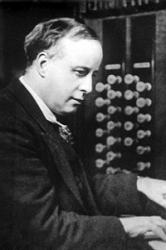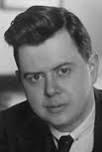1810 - 1881 Person Name: Rev. Robert Corbet Singleton Translator of "The strife is o'er the battle done" in Carmina Sanctorum, a selection of hymns and songs of praise with tunes Singleton, Robert C., M.A., was born Oct. 9, 1810, and educated at Trinity College, Dublin; B.A. 1830; M.A. 1833. He was for some time Warden of St. Columba College, near Dublin; and subsequently First Warden of St. Peter's College, Radley, from 1847 to 1851. In 1851 he retired to Monkstown, near Dublin; and then to York, where he died in 1881. In 1868 he published in conjunction with Dr. E. G. Monk, the Anglican Hymn Book (2nd ed. 1871). To that collection he contributed a large number of translations from the Latin, a few from the German, and the following original hymns:—
1. As James the Great, with glowing zeal. St. James.
2. Beneath the fig-tree's grateful shade. St. Bartholomew.
3. From out the deep, 0 Lord, on Thee. For those at sea.
4. Good Lord! who hast the weighty woes. Sexagisima.
5. Hail! highly favoured, blessed Maid. Annunciation.
6. How blest the union, gracious Lord. SS. Simon and Jude. In 1871 it reads, "How blest the unity, good Lord”.
7. In weakness great, and strong in hidden might. St. Peter.
8. Jesu, Child of mortal throes. A Litany.
9. Lord, ever shew Thy blessed face. Evening
10. Lord, give us of that fervent love. St. Thomas.
11. Lord, see how swelling crowds arise. Ps. iii.
12. Lo, sea and land their gifts outpour. St. Matthew.
13. O all ye people, clap your hands. Ps. xlvii.
14. O is it nought to you who tread? Tuesday before Easter.
15. O Lord, how excellent Thy name. Ps. viii.
16. The Cross upraised on Calvary's height. Good Friday.
17. The Father shew us, gracious Lord. SS. Philip and James.
18. The Lord hath quelled the rebel powers. Easter.
19. The Lord, He gave the word. Septuagesima.
20. The morning light hath shed its beams. Morning.
21. Thy dear disciple on the sea. St. John the Evangelist.
22. When fairest Eve in Eden rose. Holy Matrimony.
23. Who comes from Edom, with His robes. Monday before Easter.
24. Why storm the heathen? Wherefore do they ring? Ps. ii.
25. Why, weary mourner, shed the ceaseless tear? Resignation.
26. With gladsome feet we press. Processional.
27. Within a chamber, calm and still. St. Matthias.
28. With me is Luke, alone of all. St. Luke.
These hymns were all contributed to the first edition of the Anglican Hymn Book, 1868, and very few of them are found elsewhere.
-- John Julian, Dictionary of Hymnology (1907)
=================
Singleton, R. C., p. 1060, i. From Burke's Landed Gentry we find Singleton was the second son of Francis Corbet, of Aclare, co. Meath, who in 1820 took the name of Singleton only, and gave to his son the name of Corbet as a Christian name. The same authority says that R. C. Singleton was b. Oct. 9, 1810. He d. Feb. 7, 1881.
--John Julian, Dictionary of Hymnology, Appendix, Part II (1907)
Robert Corbett Singleton


 My Starred Hymns
My Starred Hymns




